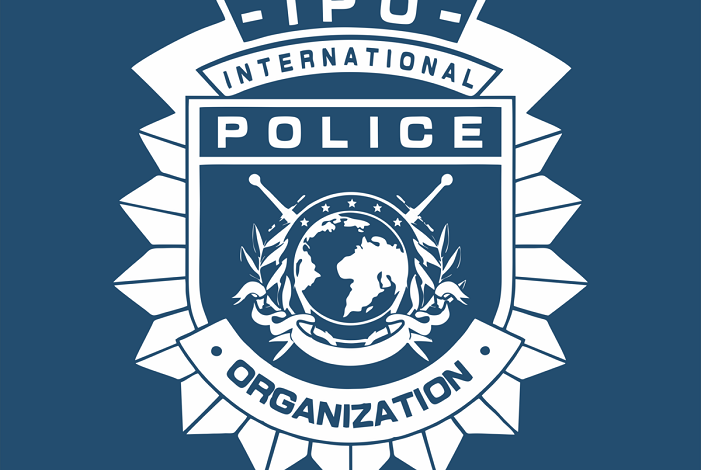International Police Commission: What does it mean?

The International Police Commission, more commonly known as INTERPOL (International Criminal Police Organization), is a vital institution in global law enforcement. Established to facilitate international police cooperation, INTERPOL plays a crucial role in tackling transnational crime and enhancing global security. In this blog post, we’ll delve into the history, functions, and significance of INTERPOL, providing a comprehensive understanding of its impact on international policing.
What is INTERPOL?
INTERPOL, the International Criminal Police Organization, is an international organization that facilitates cooperation between law enforcement agencies worldwide. Founded in 1923, INTERPOL aims to combat international crime by providing a platform for member countries to share information, coordinate operations, and support each other in criminal investigations.
The History of INTERPOL
Early Beginnings
INTERPOL’s origins trace back to 1914 when the International Criminal Police Congress was held in Monte Carlo, Monaco. This congress aimed to improve international police cooperation and share information on criminal activities. However, it was not until 1923 that the organization was formally established under the name “International Criminal Police Commission” (ICPC).
Rebranding and Modernization
In 1956, the organization adopted the name “INTERPOL” as its telegraphic address, and this name became widely used. Over the decades, INTERPOL has evolved to adapt to the changing landscape of international crime, incorporating new technologies and expanding its reach. The organization’s headquarters is located in Lyon, France.
Key Functions of INTERPOL
Facilitating International Police Cooperation
One of INTERPOL’s primary functions is to facilitate cooperation between police forces from different countries. This is crucial for addressing crimes that cross national borders, such as human trafficking, drug trafficking, and terrorism. INTERPOL provides a secure communication network that enables member countries to share information and coordinate actions.
Issuing Notices
INTERPOL issues various types of notices to assist in international law enforcement. Some of the key notices include:
- Red Notice: A request to locate and provisionally arrest a person pending extradition.
- Blue Notice: A request to collect additional information about a person’s identity or activities.
- Green Notice: A warning about a person’s criminal activities to help member countries be aware of potential threats.
Supporting Criminal Investigations
INTERPOL provides support to member countries in criminal investigations by offering expertise, resources, and specialized databases. The organization’s databases contain information on stolen property, missing persons, and known criminals, which can be invaluable in solving cases.
Enhancing Global Security
INTERPOL works to enhance global security by addressing various forms of organized crime, including terrorism, cybercrime, and drug trafficking. The organization provides training and capacity-building programs to help member countries strengthen their law enforcement capabilities and effectively combat these threats.
The Structure of INTERPOL
General Secretariat
The General Secretariat is the central administrative body of INTERPOL and is headquartered in Lyon, France. It is responsible for managing the day-to-day operations of the organization and coordinating activities between member countries.
National Central Bureaus (NCBs)
Each member country has a National Central Bureau (NCB), which serves as the main contact point between INTERPOL and the country’s law enforcement agencies. The NCBs play a crucial role in facilitating communication and cooperation on international cases.
Executive Committee
The Executive Committee is responsible for overseeing INTERPOL’s strategic direction and ensuring that the organization’s policies and activities align with its objectives. It consists of elected representatives from member countries.
General Assembly
The General Assembly is the supreme governing body of INTERPOL, comprising representatives from all member countries. It meets annually to discuss and decide on the organization’s policies, budget, and major initiatives.
The Impact of INTERPOL
Strengthening Global Cooperation
INTERPOL’s role in fostering international cooperation is critical for addressing the complexities of transnational crime. By providing a platform for member countries to collaborate, INTERPOL enhances the effectiveness of global law enforcement efforts and promotes the exchange of information and expertise.
Advancing Technological Capabilities
INTERPOL’s investment in technology has significantly advanced its ability to combat crime. The organization’s databases, communication networks, and analytical tools enable member countries to respond more effectively to emerging threats and challenges.
Supporting Victims of Crime
INTERPOL’s work has a direct impact on the victims of crime. By facilitating international cooperation and providing support for investigations, INTERPOL helps bring perpetrators to justice and provides assistance to individuals affected by crime.
Addressing Emerging Threats
INTERPOL’s ability to adapt to new and emerging threats, such as cybercrime and terrorism, underscores its importance in global security. The organization’s proactive approach to addressing these challenges ensures that member countries are better equipped to handle evolving criminal activities.
Challenges Faced by INTERPOL
Political Sensitivities
INTERPOL operates in a complex political landscape, where member countries have varying interests and priorities. Navigating these political sensitivities while maintaining neutrality and effectiveness can be challenging for the organization.
Know more about: State Exams Commission
Resource Limitations
As an international organization, INTERPOL relies on the contributions and support of its member countries. Resource limitations and varying levels of commitment from member countries can impact the organization’s ability to carry out its mission effectively.
Cybersecurity Threats
With the increasing reliance on technology, INTERPOL faces challenges related to cybersecurity. Protecting its databases and communication networks from cyberattacks is essential for maintaining the integrity of its operations and safeguarding sensitive information.
Conclusion
INTERPOL plays a crucial role in the global fight against crime by facilitating international cooperation, supporting criminal investigations, and enhancing global security. Through its various functions and organizational structure, INTERPOL contributes to a safer world by addressing transnational crime and promoting collaboration among law enforcement agencies. Despite facing challenges, the organization’s impact on international policing and its ability to adapt to emerging threats underscore its significance in maintaining global security. Understanding INTERPOL’s role helps appreciate the complexities of international law enforcement and the importance of global collaboration in tackling crime.





